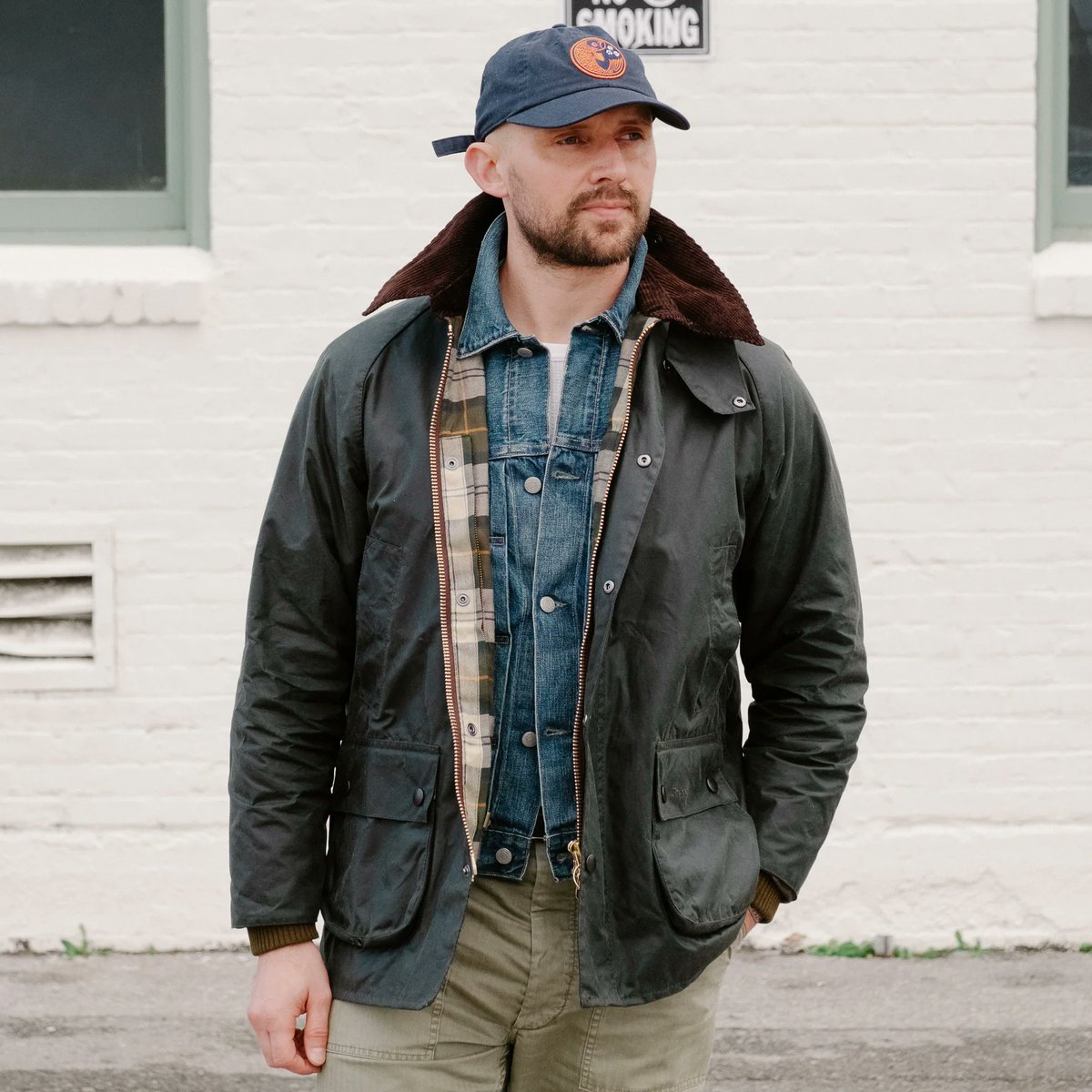The Washington Post reports that Michael Anton and Sebastian Gorka had a falling out over who should receive credit for writing Trump's speeches. This is incorrect. In this thread, I will tell you the real reason why Anton dislikes Gorka. 🧵
https://twitter.com/John_Hudson/status/1860145292034662459
First, who is Michael Anton? Anton is the author of "The Flight 93 Election" essay and one of the people trying to put an intellectual backbone on the Trump movement. He served as Rudy Giuliani's speechwriter and press secretary, and worked at the NSC during Bush Jr.'s term. 

He also happens to be really into classic men's tailoring. I was with him on StyleForum for many years, the largest online forum for men's tailoring fanatics. He was known for many things, but principally two ideas: promoting Good Taste and Conservative Business Dress (CBD) 

By Good Taste, I mean the taste of the ruling class prior to the 1980s. Think: figures like George Plimpton and William Buckley, 1960s Harvard graduates, the people who would have shopped at Brooks Brothers and J. Press. By Good Taste, I mean "Good" in the sociological sense. 

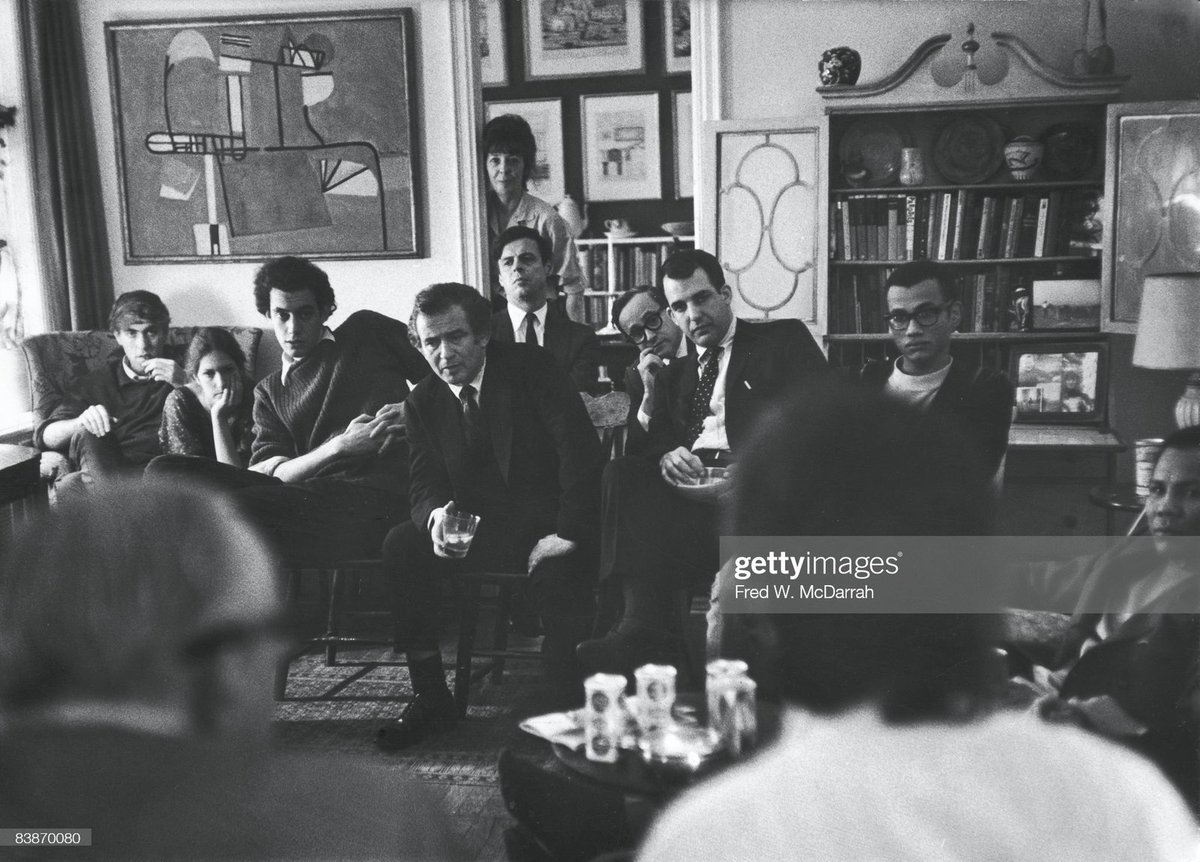

The Washington Post is correct that Anton says he dislikes Gorka because he feels Gorka unfairly took credit for writing Trump's speech (when Anton was the speechwriter). But one can't assume that a stated reason is the real reason. I posit a different theory.
Anton dislikes the way Gorka dresses. "Surely," you say, "no one can get this upset about clothes." Oh, but they can. You do not know my people. From 2002 to 2018, Manton racked up 41,314 posts on StyleForum. About 90% of this was arguing over clothes (behavior I also engage in) 

Fellow menswear writer Christian Chensvold once met Anton. He wrote of the experience: "Anton is a pleasant fellow, but when you meet him you feel a cold scrutiny pass over you like an open window in February."
Anton has very strong ideas about clothes—and Gorka violates them.
Anton has very strong ideas about clothes—and Gorka violates them.

IMO, many of his ideas are sound, so long as you share his aesthetic preferences. So in this thread, I will list some of these violations that would have gotten under Anton's skin. And perhaps you can pick up some ideas for your own sense of dress.
In a thread about how to wear white dress shirts, Anton notes that they're best with suits, not odd jackets, and they often make for a bad background for certain tie colors. Among them: yellow, orange, purple, and nearly all greens. 

And what do we see here? A white shirt combined with ties in colors yellow, orange, purple, and green. I can tell you it would have bothered Anton to see this on a daily basis. 




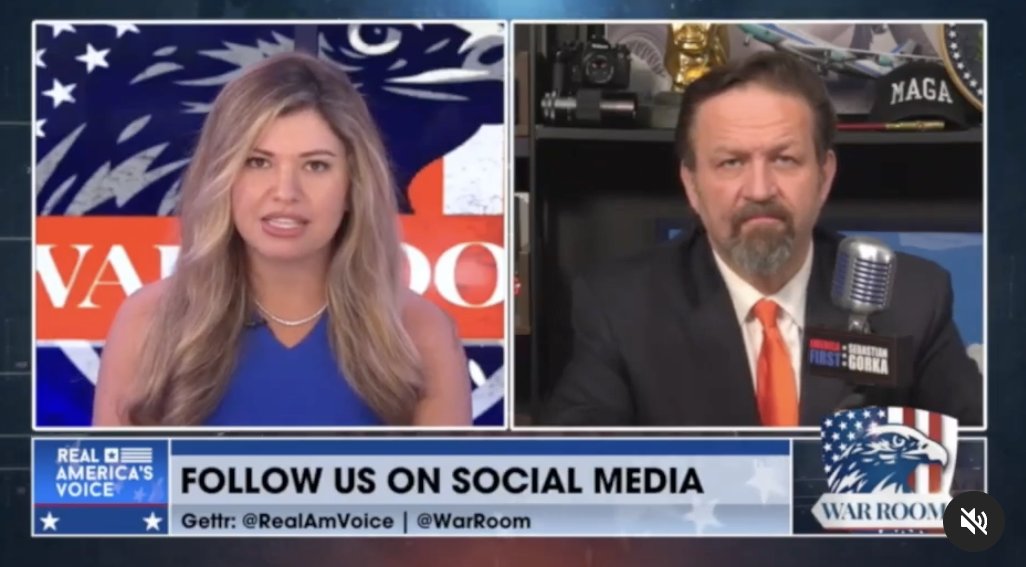


Anton also famously hated red ties (burgundy being an exception). He once started a thread in a last ditch effort to bring Good Taste back onto the forum. But when one member kept posting bright red ties, Anton blew up over it, feeling that he was being intentionally antagonized 

And what do we see here? Bright red ties over and over again. This would have driven Anton mad, like a bull charging towards a muleta. Gorka prob didn't know it, but that sly look in the last slide would have come across as deliberate antagonism. 



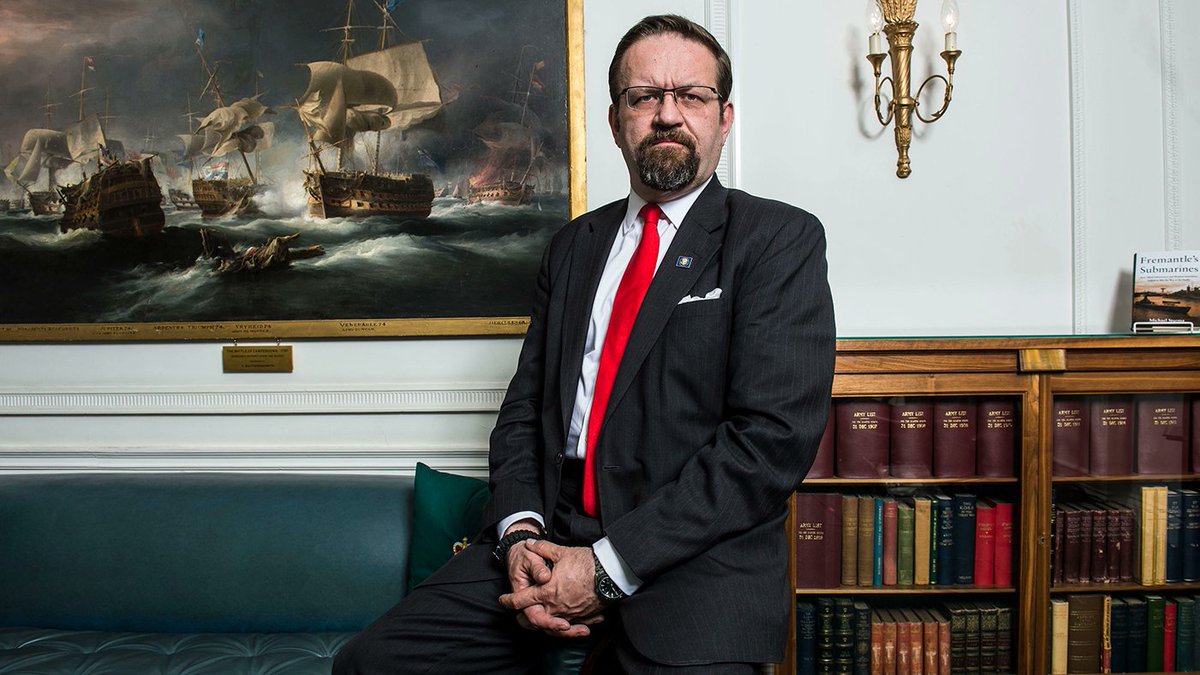
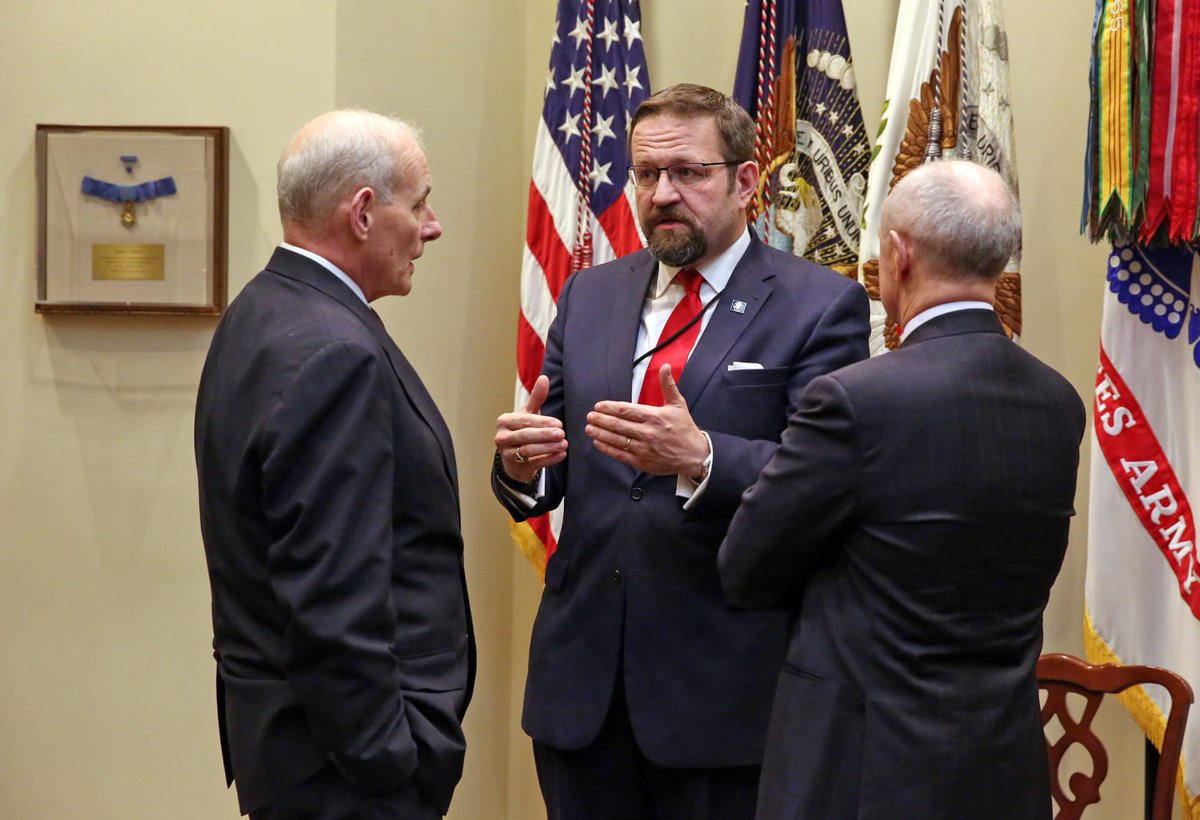
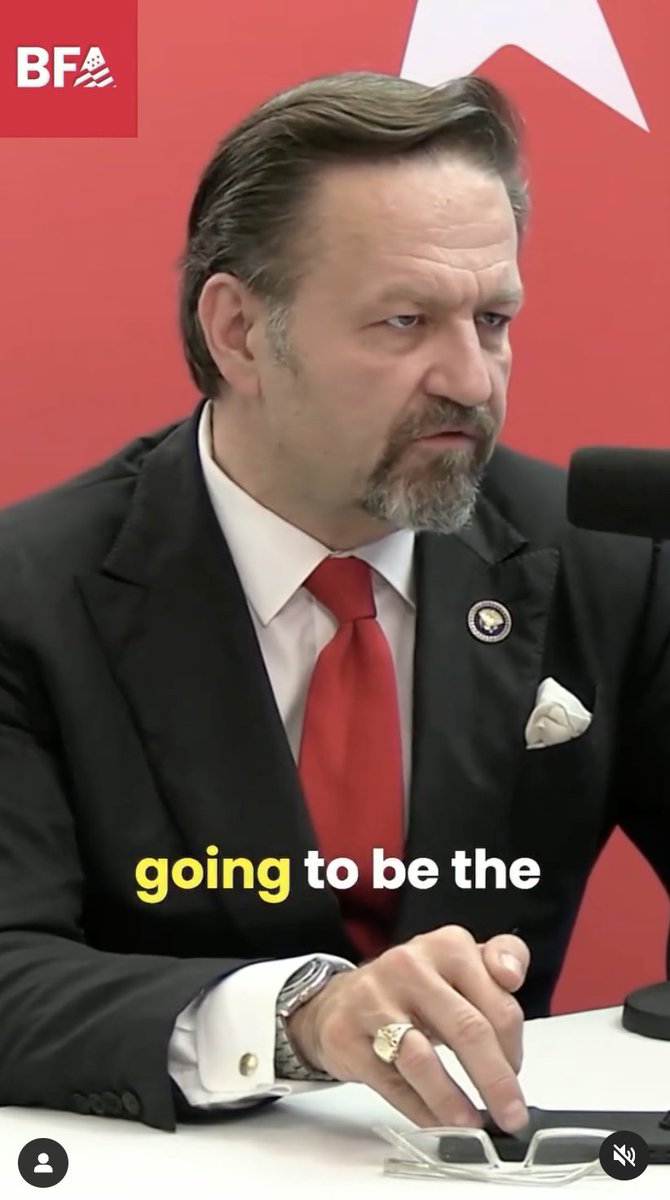

In another post about how to develop Good Taste, Anton cautions men to stick to light colored shirts. "A dark shirt," he warns, "has always been considered both in bad taste and the mark of the lower, and even criminal, classes." 

Anton was principally speaking about dress shirts in coat-and-tie outfits, so outfits like 1, 2, and 3. But I think he would have also gotten upset at the black t-shirt worn with a tailored jacket (pic 4). At the very least, this would not be very George Plimpton. 




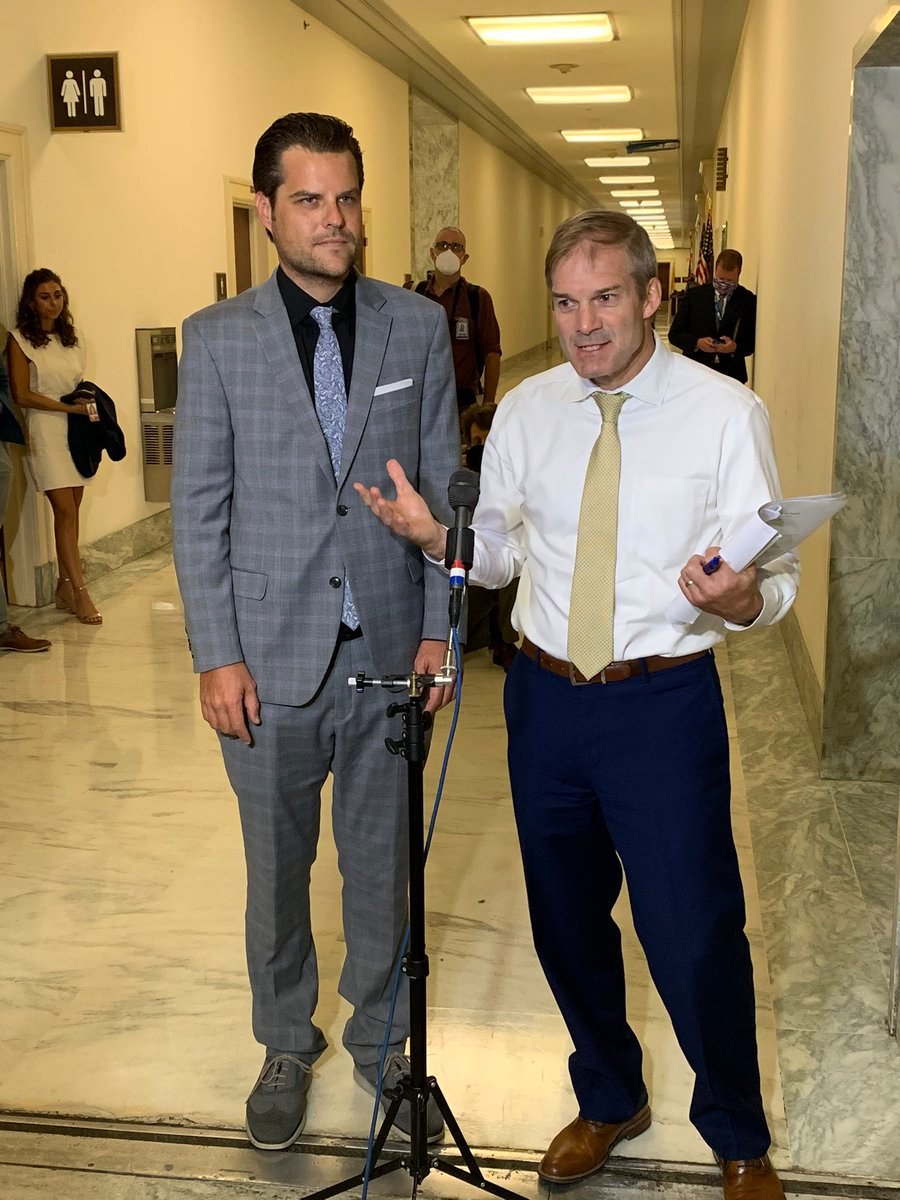


IMO, Anton presented the forum with some very good ideas. The only real criticism is that his idea of Conservative Business Dress was sometimes too constricting. "Double breasted suits are for pimps," he asserted. "People who wear pink shirts should be sent to re-education camps" 
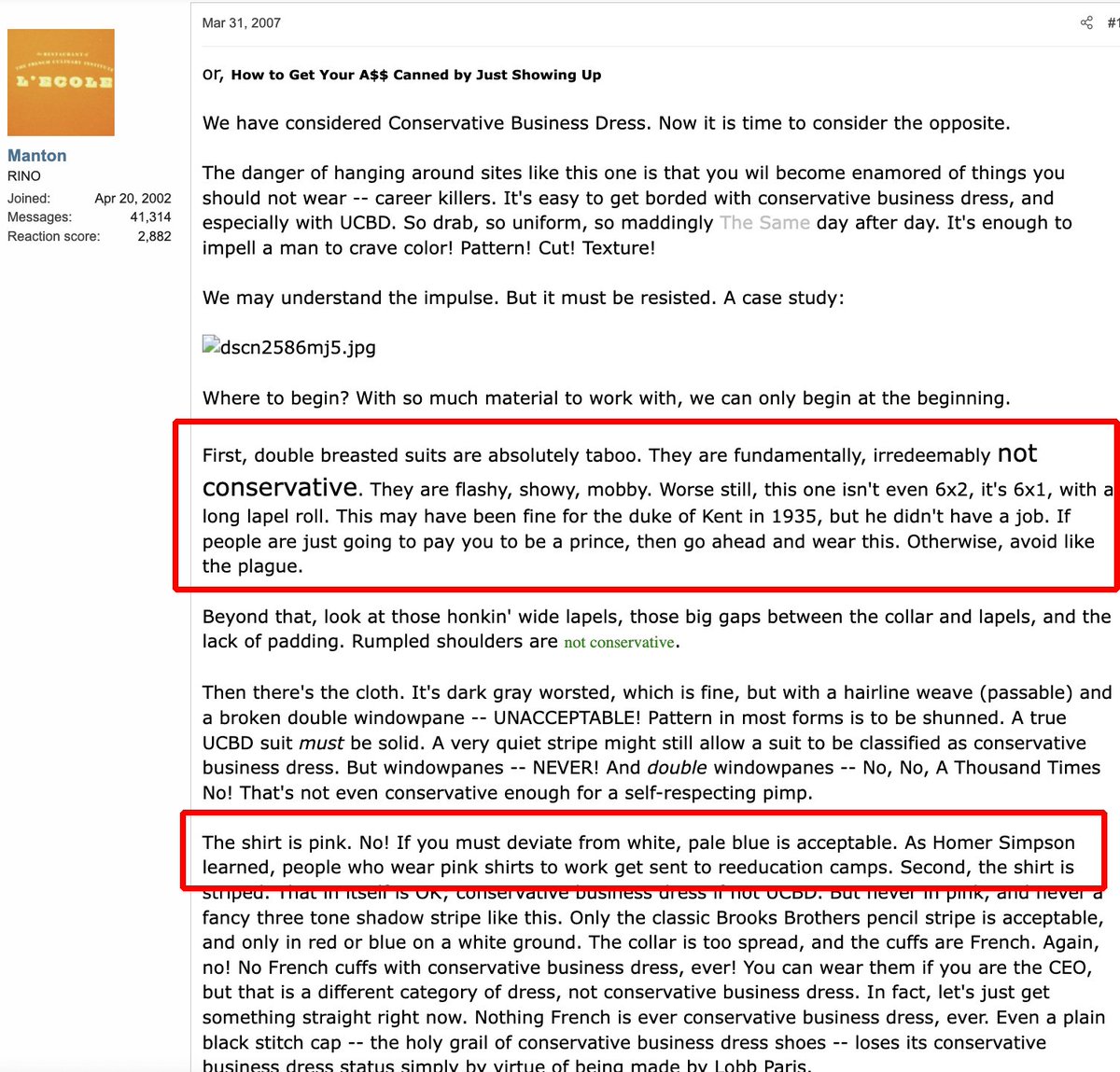
Here we see a double-breasted suit and not only a pink shirt, but a pink shirt worn with the collar points out. As Anton would have said, "this is flashy, showy, mobby." This aesthetic would have enraged him. 

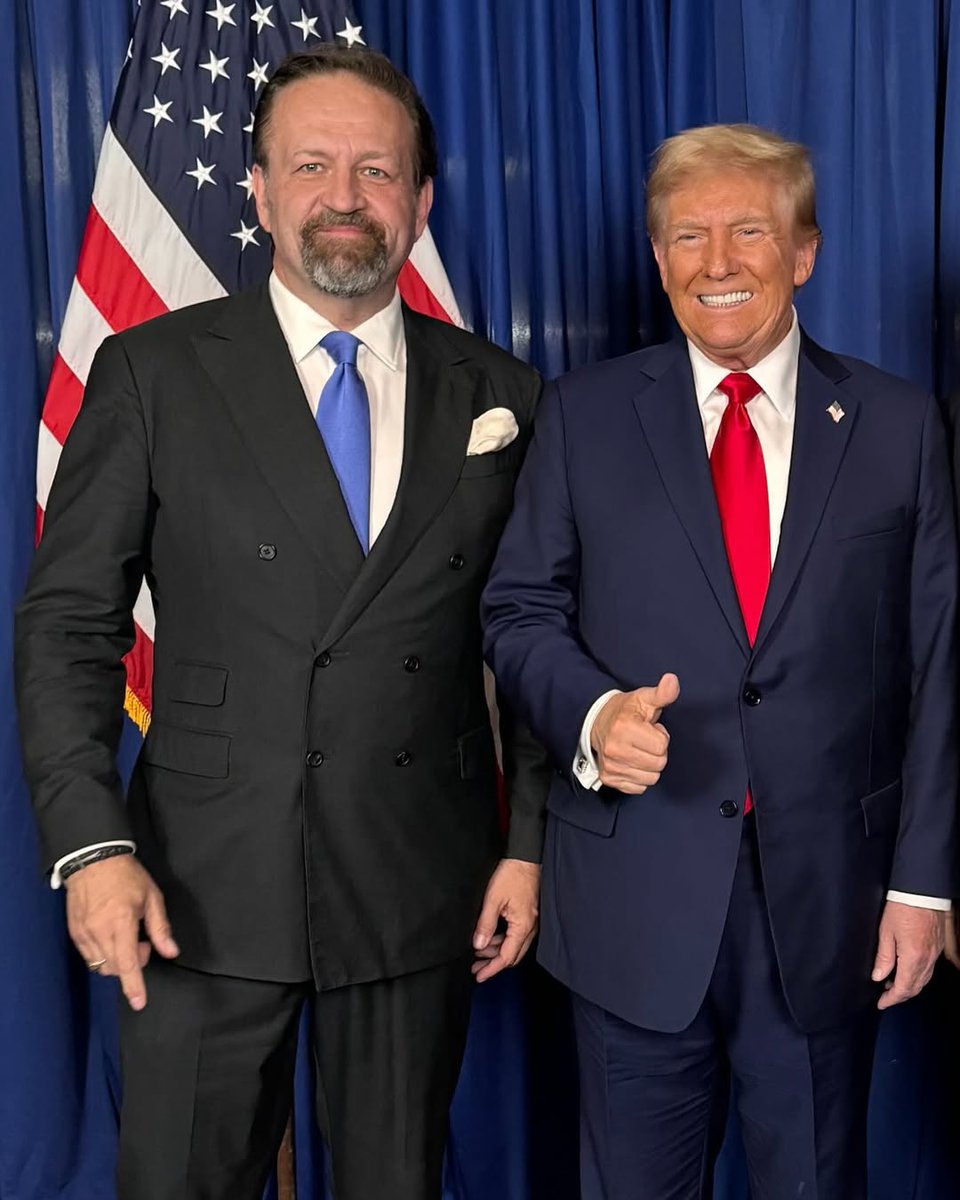

When a new poster asked about possibly getting a shirt made with contrasting cuffs, Anton swatted the suggestion away with a simple: "Bad. Ugly. Naff." And he was right; don't do this. 

The contrast here is on the inside, not outside, but since the cuffs are flipped around, it would have made Anton even angrier. More "Cam of Modern Family;" less "William Buckley." 

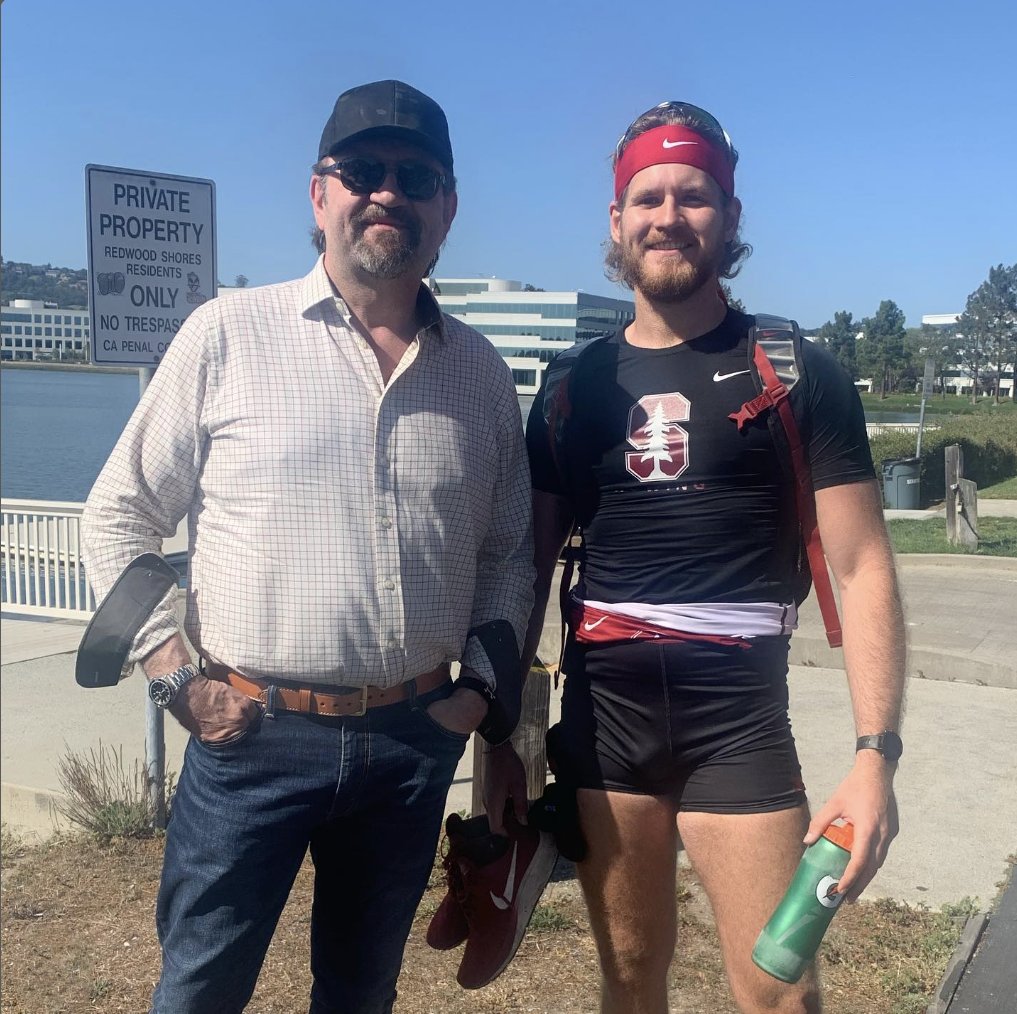

The thing that would have annoyed Anton the most is Gorka's style proclamations. For instance, Gorka believes that dark suits should never be worn with shoes in brown or even cordovan, only black. (He is wrong.) 

In fact, a navy or gray suit worn with dark brown, mid-brown, and cordovan colored shoes is a classic American combination, a fact that Anton knows well (as a style expert with a particular fondness for American style). He wore the combination often. 





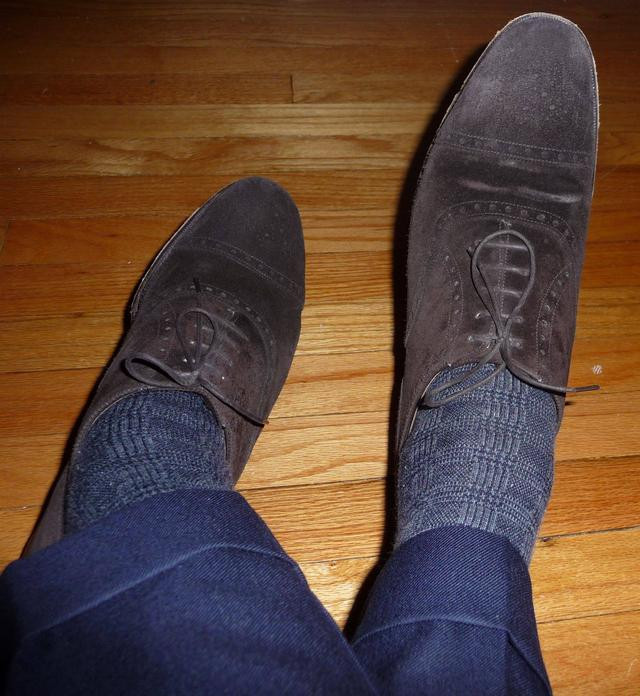

So while Anton says this feud is about speech credit, I think it's about clothing. IMO, to understand Anton's psyche, you have to spend years with him on an obscure menswear forum. I invite journalists to contact me in the future on White House feuds involving Anton. 

• • •
Missing some Tweet in this thread? You can try to
force a refresh











